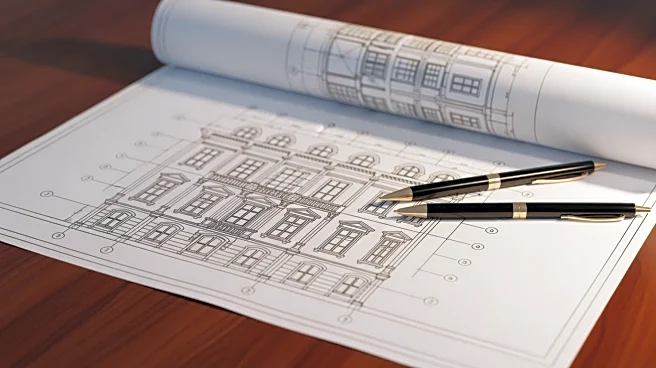What's Happening?
The White House is undergoing renovations in its East Wing, sparking discussions about the necessity of these updates. ABC News' Alex Presha interviewed Gahl Burt, who served as President Ronald Reagan’s
social secretary, to gain insights into the situation. Burt expressed that the renovations are long overdue, suggesting that the updates are necessary to maintain the functionality and historical integrity of the White House. The East Wing, which houses offices for the First Lady and her staff, as well as the White House Social Office, plays a crucial role in the operations of the presidential residence.
Why It's Important?
The renovations of the White House's East Wing are significant as they reflect ongoing efforts to preserve and maintain one of the most iconic buildings in the United States. The updates are crucial for ensuring that the facilities meet modern standards while preserving historical elements. This project may impact public perception of government spending, especially in times of economic scrutiny. The renovations could also influence future decisions regarding the upkeep of other historical government buildings, setting a precedent for balancing historical preservation with modern needs.
What's Next?
As the renovations progress, there may be further discussions and evaluations regarding the cost and scope of the project. Stakeholders, including government officials and preservationists, might weigh in on the necessity and execution of the renovations. The outcome could influence future policies on maintaining historical sites, potentially leading to more structured guidelines for such projects. Public and political reactions will likely shape the narrative around government spending on historical preservation.
Beyond the Headlines
The renovations highlight the broader issue of maintaining historical sites in the U.S. Balancing the need for modern functionality with historical preservation presents ethical and logistical challenges. This situation may prompt discussions on how to best preserve national heritage while accommodating contemporary needs, potentially influencing cultural and legal frameworks surrounding historical preservation.








